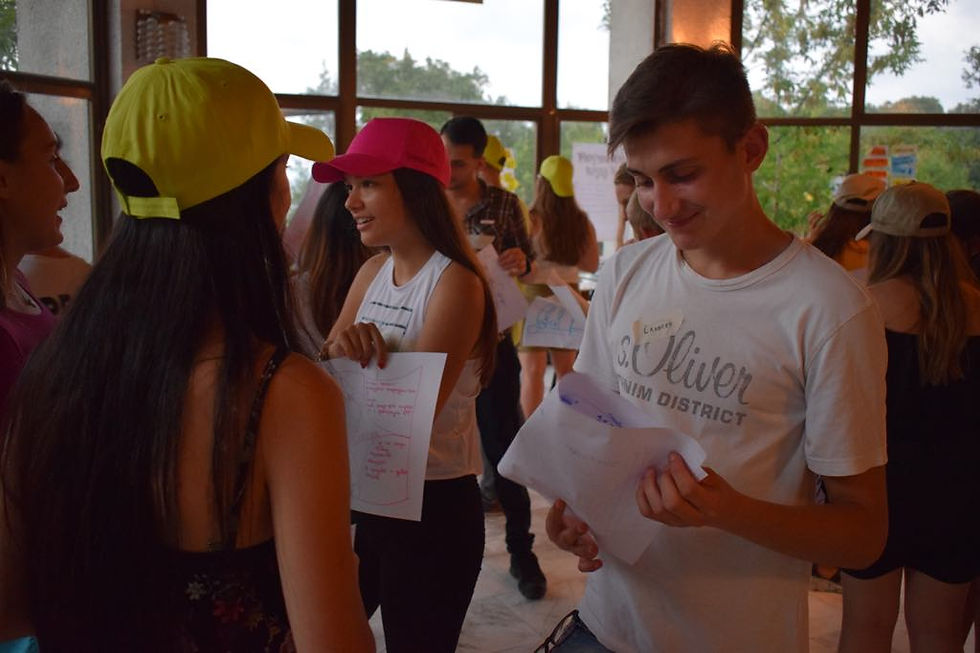It’s been quite some time since I came home from my second Erasmus+ project, but I am glad that I took my time to think about all the things, because there was a lot to think about. Now, that the things have settled in my head, I looked back to reflect on my experience as a whole.

The project was called “The New Age” and took place in a town called Struga in Macedonia. With participants from Slovakia, Macedonia, Bulgaria, Romania, Italy and Spain, we looked at the topic of conflict management. Every day, we had four sessions starting from 10 till 19 o’ clock with 30-minute breaks in between them. During these sessions, we learned about the main conflicts in each of our countries, such as the LGBT referendum in Romania or the independency of Catalonia from Spain. We then proceeded to exchange our opinions about the conflicts, which gave us different views and opinions on the conflicts. Later, we defined what a conflict is, what the causes of a conflict are and finally, how to solve a conflict, all in an informal form of learning with teams consisting of randomly selected people from different countries, brainstorming, making a poster and then presenting it to the rest of the group. The final result of our work was a small booklet, which should work as a guide in our everyday conflict solving.

But that’s not all, if the sessions were a “formal part” of the project, now I’d like to look at the “informal part”, which was our free time after dinner at 19 o’ clock. During this time, we could actually meet and get to know each other properly, and in my opinion, this is the main part of every youth exchange. This is where I gained the most from the project. While conflict solving was very interesting and helpful, the main value came from the time spent with the people from different countries. From chatting, to deep talks and having fun together, just having to communicate and express yourself in a different language is a great challenge to improve your communication skills, but also learning about different views, opinions and cultures is so fascinating, that I couldn’t go through all the benefits, that it gives you. It develops now often overlooked soft skills, such as empathy, respect, listening to others, putting yourself in their shoes and overall broadens your view in general.
Last but not least we learned about Erasmus+ projects in general - their different levels, topic selection and how to create them as well as where to look for new projects. This gave us an insight into how people can write and organize projects, for those who might be interested in working with youth.

To conclude, I can only recommend the Erasmus+ experience as a whole. Not only do you get to travel, you also learn something new, develop yourself, meet amazing people and most importantly, make yourself some beautiful memories to remember.







